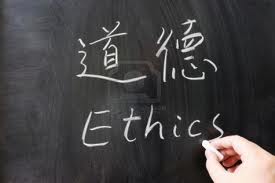The Chinese government is taking an aggressive role in trying to clean up the corruption that has come to characterize the pharmaceutical industry acting  within its borders. It is difficult to say whether China is pursuing all companies with equal fervor or if they are singling out foreign companies in an effort to create a more competitive environment for Chinese drug companies. Nevertheless, the hunt is on for violators. Do the Chinese care about ethical abuses or is there a deeper motive?
within its borders. It is difficult to say whether China is pursuing all companies with equal fervor or if they are singling out foreign companies in an effort to create a more competitive environment for Chinese drug companies. Nevertheless, the hunt is on for violators. Do the Chinese care about ethical abuses or is there a deeper motive?
In an article for CNN Money (July 24, 2013) entitled: “Health workers caught in China crackdown,” writers Charles Riley and Yuli Yang describe the People’s Hospital of Gaozhou in Guangdong Province where 39 hospital workers, including 9 physicians have been accused of accepting illegal bribes and kickbacks amounting to $450,000 going back to 2007. According to the article, executives at GlaxoSmithKline have been breaking the law in order to boost sales and prices by offering incentives to healthcare workers to favor their products. They are not alone. AstraZeneca and several other companies are also under scrutiny.
The article states:
“It’s not yet clear whether the corruption crackdown is tied to a probe of price setting practices at 60 pharmaceutical companies announced last month by authorities, but at least one drug company under investigation has already promised to lower its prices in China.”
The company in question, GlaxoSmithKline is also quoted as making the statement:
“Savings made as a result of proposed changes to our operational model will be passed on in the form of price reductions, ensuring our medicines are more affordable to Chinese patient.” Oh really.
This sets up a very interesting ethical issue.
The State of Medical Care
It has been said that the salaries of physicians in China lag in comparison to other professionals and this makes them angry. They are seen as being susceptible to bribes; they want more. If they cannot achieve a better salary no matter how great their merit, an under the table bribe is appealing.
In a country where the state finances healthcare, costs must be tightly controlled. Pharmaceutical companies operating in China realize that even the slightest edge can yield major benefits. There are so many people in China, a physician or several physicians at a major hospital might see tens of thousands of patients over the course of a year. By favoring a drug through a bit of bribery, a physician might very well earn millions of dollars for a pharmaceutical company and a few extra bucks for herself.
It is easy to think: “Who gets hurt, really?”
If a patient walks in for treatment and I know he needs a medication and Company “A” makes it, and Company “B” makes it, who cares? However, suppose “A” is significantly more expensive and it will cost my employer (in this case, my hospital) more money to buy it, why wouldn’t I choose the Company “B” product? Suppose “A” gives me an incentive every time I write a prescription for their product? In this case, I am directly hurting my employer.
Let’s take the problem a little further.
A patient comes to me and I think he might benefit from Company “A’s” product, but I also know that in all likelihood, his condition will clear up in a few day’s if I don’t prescribe it at all. Nevertheless, I know that Company “A” has offered me an incentive.
Now I am prescribing a medication that is hurting my company and could hurt the patient. This becomes a more severe ethical challenge.
We can even go further.
Suppose the physician knows that in 20 percent, 30 percent or more cases, there could be a serious side effect? I am not talking about something fatal per se, but suppose there is drowsiness, or insomnia or flu-like symptoms that may prohibit the patient from going to work?
Now we are allowing greed to adversely affect both our employer and our patient and even the patient’s employer. One wonders how many patients the bribery has negatively affected?
Who Cares?
It would seem GlaxoSmithKline found a way to make its products less expensive in China. I wonder if their altruism was as the result of a major breakthrough or if the sight of physicians led away in handcuffs might have influenced their seeing the light? Nevertheless, they still have competition and who knows what incentives they may discover in the future? Or is all of this just smoke and mirrors that the Chinese are using as a way to gain a competitive advantage? Many questions with few immediate answers.
I try to stay away from politics yet as we are at the dawn of Obama care, I wonder who in Washington will look at potential abuses from an ethical point of view? Will it all be sunshine and roses? Or will patients suffer because of the temptations of big money?

